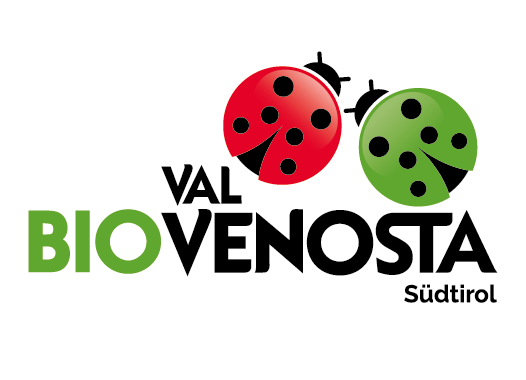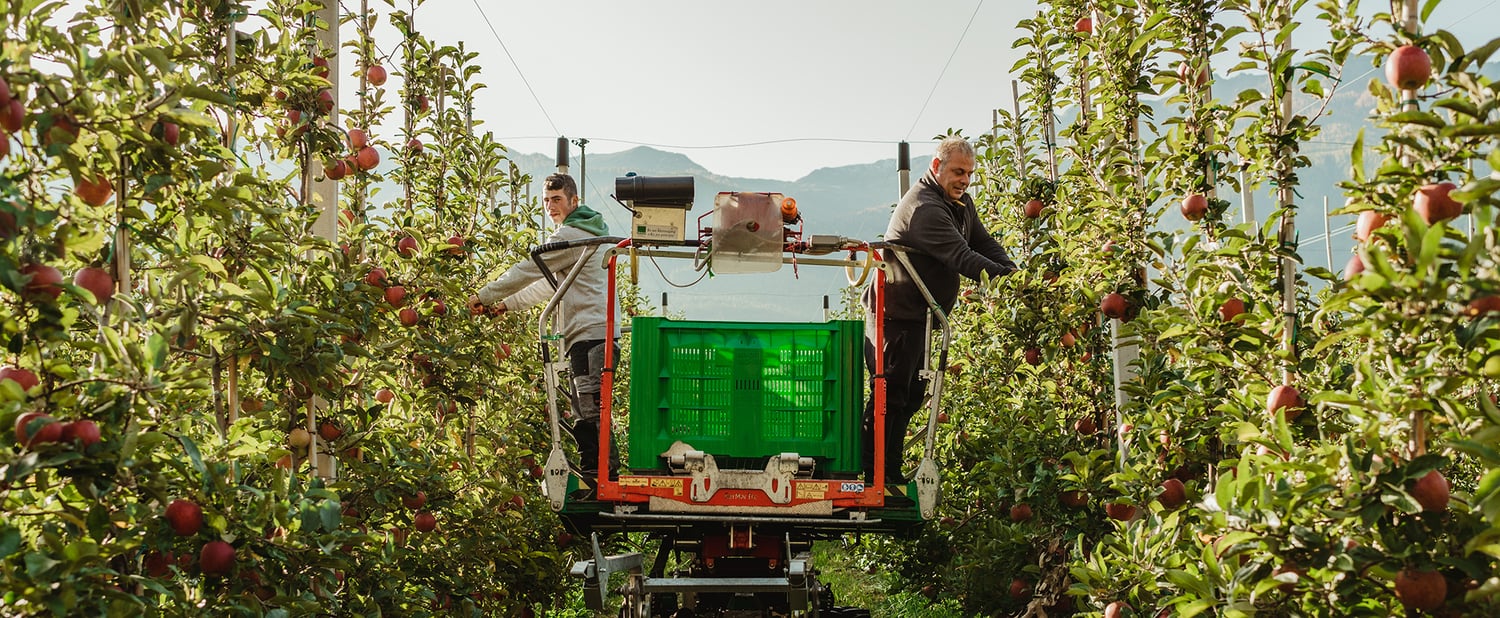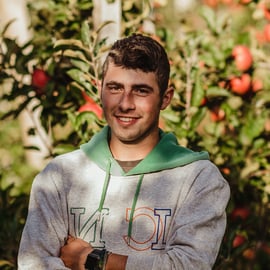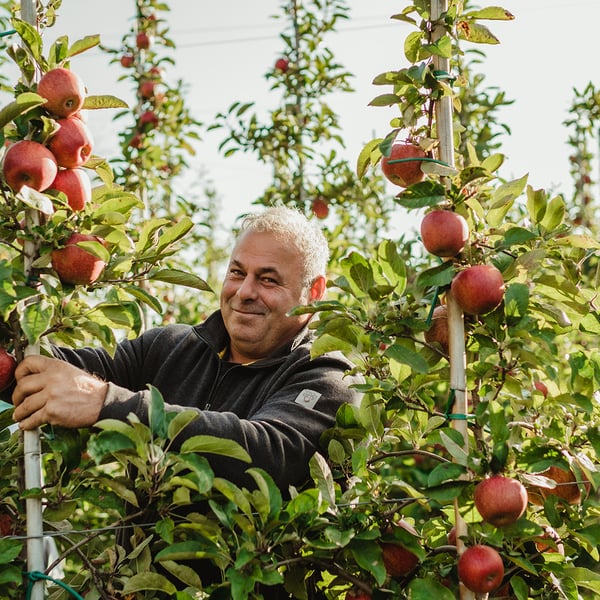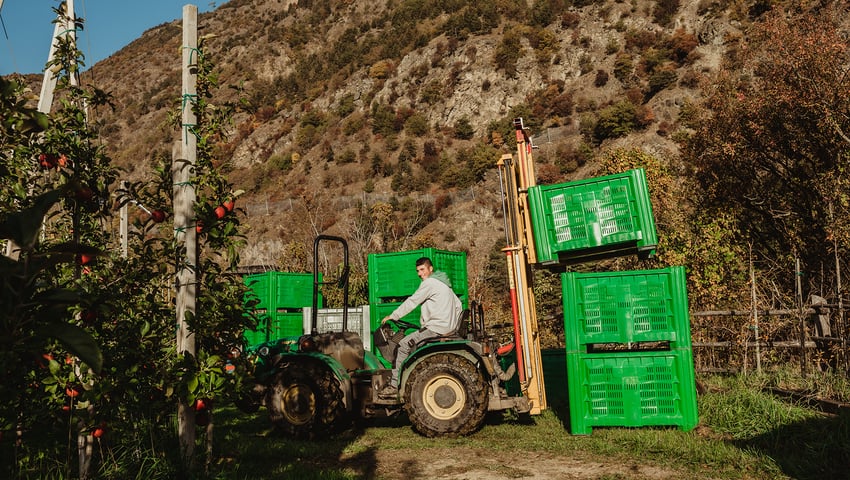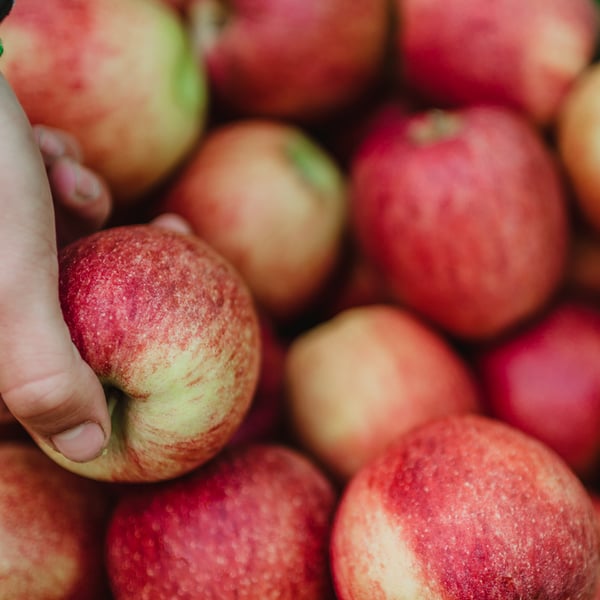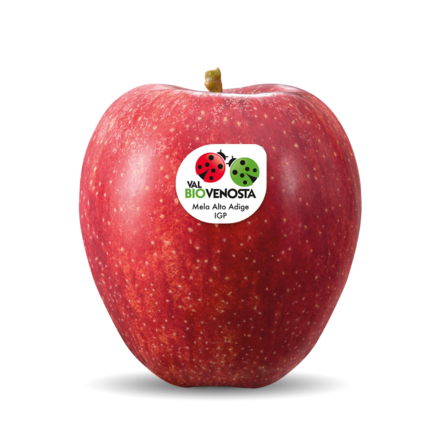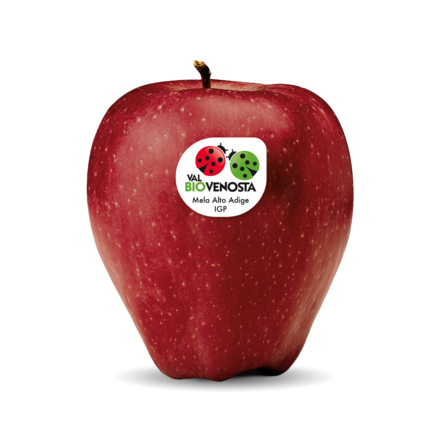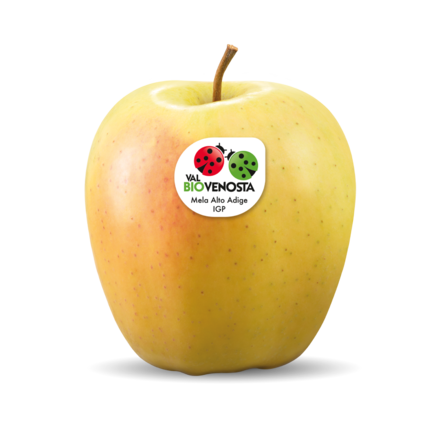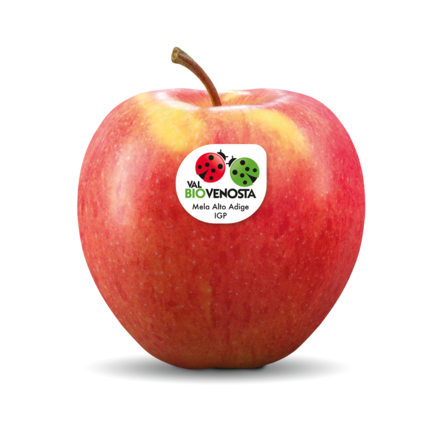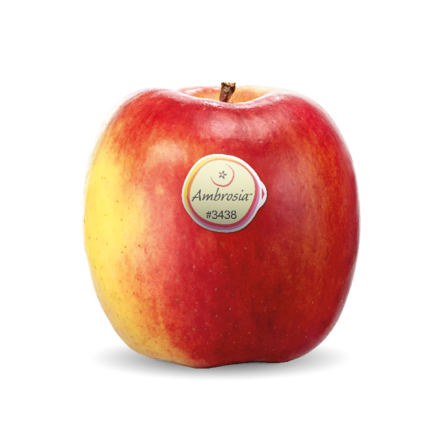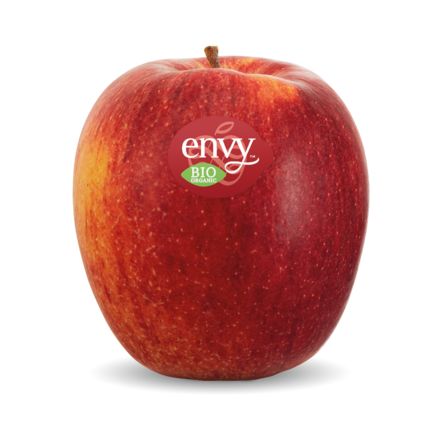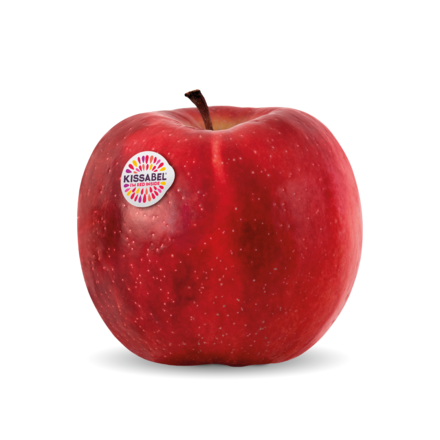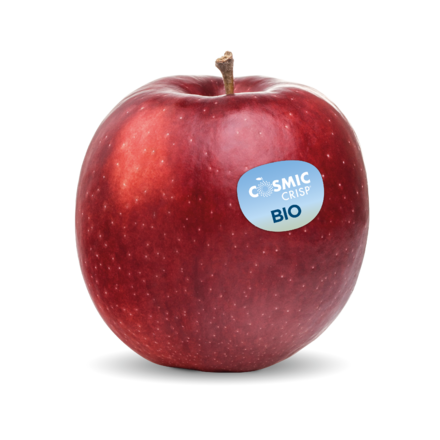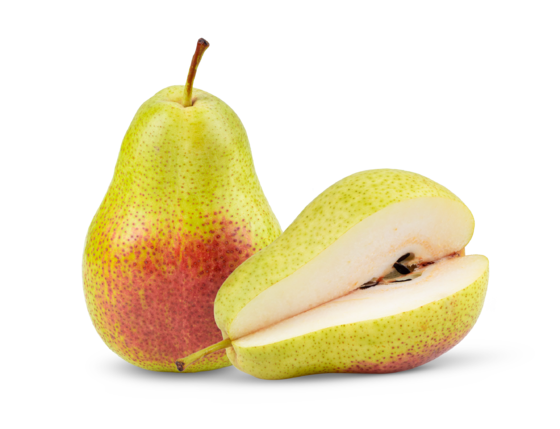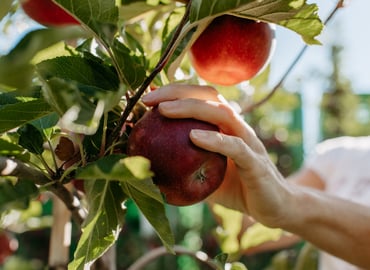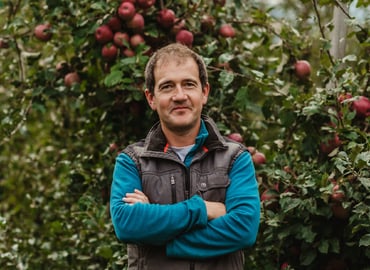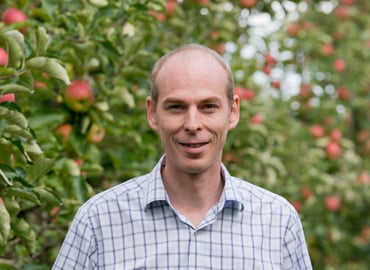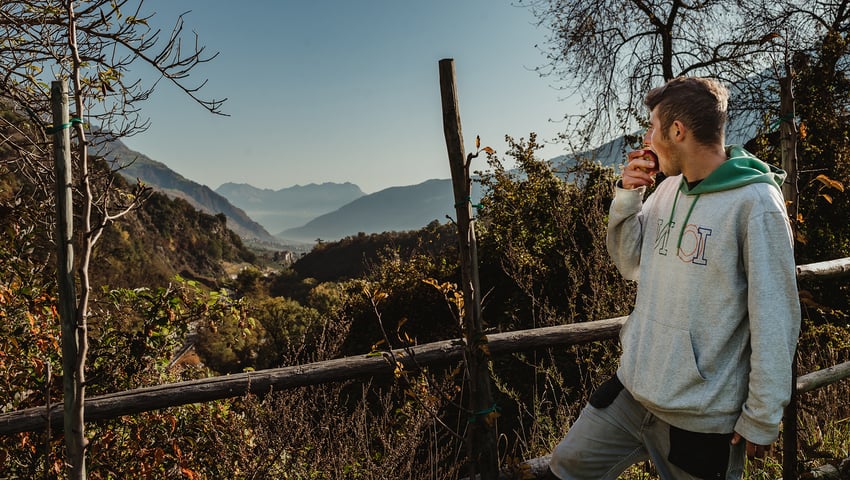
Since our farmstead once stood next to the Church of St. Nicholas in Laces, my mother named it “Nikolaushof.” Thus, the connection to the Romanesque church from the 14th century remains alive to this day. Before I converted to organic farming, I gave my son Hannes the time to successfully complete his training at the agricultural school. Afterwards, we immediately switched to organic farming together. As a sociable father-and-son team, we are very open to experimentation. This is reflected in our great passion for farming and in the eight apple varieties we cultivate: Golden Delicious, Red Delicious, Royal Gala, Pinova, Cosmic Crisp, Envy, Kissabel, and Ambrosia. The latter is currently our favorite, both visually and in taste. We have also grown fond of the Williams pear, which we cultivate in small quantities. Thanks to this diversity of varieties, our harvest window is extended – which is a great advantage.
Our particular focus is on our greatest asset: the fertile Vinschgau soil. Regular soil tests and only as much fertilizer as is truly necessary ensure that it always has enough “juice” for the trees. We aim for slow growth, because rapid growth only produces too many leaves and thus too much surface for pests. Often, the meadows are not fertilized for years, and yet they still have enough energy for large and healthy fruits. For us, organic is therefore synonymous with “slow food” production. Many manual steps bring the best results. Manual thinning in spring regulates growth professionally so that not too many apples ripen on one tree. Each year we refine our knowledge so that every tree produces just the right amount of splendid apples – no more, no less. Over time, one develops a sense of how many fruits each tree is willing to give without being overburdened.
My son Hannes also finds organic farming more interesting than other methods and agrees with me when I sometimes advise him to be patient. You must be able to wait and see what nature does. When, for example, the woolly apple aphid appears, we both rely on the beneficial Aphelinus mali wasp. The female lays its eggs in the aphid larvae, parasitizing them and preventing the pest population from spreading. All this takes time – nature demands patience from us. Likewise, the soil must be given time to develop slowly. It is a living organism, even more alive since we switched to organic. A lived ritual is the exchange of knowledge between Hannes and me whenever we talk about our favorite subject: our dream job, being farmers in the Alpine Vinschgau.
